Book Reviews by Genre: Fiction
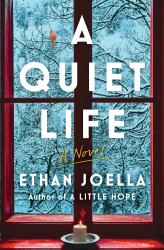
A Quiet Life by Ethan Joella is an emotional, heartwarming story about human connection. Joella’s story tackles grief and loss, all the while remaining light-hearted and hopeful. A Quiet Life takes on the perspective of three different people, all struggling with their own hardships and trials. Chuck, an elderly man mourning the death of his wife, must decide whether or not he should venture back to their vacation home for their yearly trip. The pain is too much to bear, and imagining himself being there alone is heart wrenching. Ella, a single mother working a newspaper job, is trying desperately to find her missing daughter. Kirsten works at an animal rescue and tries her best to serve the community. However, after the quick and tragic murder of her father at a convenience store, Kirsten can hardly find the light in life again. A Quiet Life shows the intricacies and hardships that come with loss, all the while connecting every missing piece, and showing us how togetherness is what keeps us afloat.
(Reviewer Grade: 12)
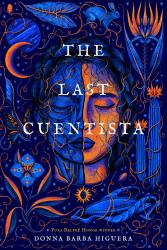
Donna Barba Higuera takes on a futuristic dystopian space adventure in her story The Last Cuentista. A young, curious girl named Petra lives in a distant timeline on Earth, where scientists are helplessly searching for a way to avoid certain doom. While in the face of death, Preta leans on her abuelita’s stories, which are rich and full of life. Yet, as the clock starts ticking and Petra is forced to leave it all behind, the one thing she keeps with her is the power of tales. The Last Cuentista is a brilliantly written novel depicting a world in space, where the connection and true heart of human-kind is severed. Petra shows the reader what true perseverance is, and reminds us all of what it means to truly be human.
(Reviewer Grade: 12)
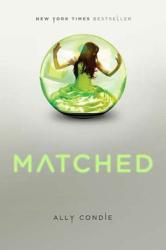
This is a wonderful, amazing, trilling book! I love the descriptive language and the way its laid out, you never want to stop reading it. it makes you want more. if you read this book, which you should, you need to read the other books as well. It’s a thought-provoking, engaging dystopian novel with the stereotypical love triangle at the center. Condie does a good job setting the scene and the overall vibe. However, I was very disappointed when Cassia burned her grandfather's poems. If she doesn't have the courage to keep a piece of paper, that has been in her family for generations, how will she have the strength to do anything? This is a great book, the characters are developed well and the story is intriguing. (Spoiler) The only thing I would change is Xander at the end, where he lets Cassia go. I know that he is understanding and all, but I think it would be more appropriate for him to want Cassia to stay with him forever, and ever since the pill incident with Ky, he'd like to follow the rules. I really like the storyline and the fact that Cassia is different and doesn’t fit into what people expect of her. Also, I think she used too much show not tell as I don’t see why Cassia likes Ky or how on earth Xander would be a perfect match. I feel like she left the important bits out and kept what wasn’t interesting Other than the few complaints I have, Matched is a book that I would recommend to any Romance or Dystopian fans.
Reviewer's Grade: 8
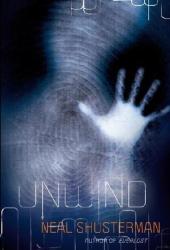
Unwind has a fresh, fascinating, and frankly genius premise: after a war is fought on abortion, the U.S. government passes legislature allowing parents to sign an order to "unwind" their teenagers. The teen is then taken apart, and each body part is used for transplants. Like any good dystopia, the concept poses a number of thought-provoking questions that the book tries to address, like "do we have souls?" or "what makes a person themself?" or "how scary is it to be unwound, really?", and it answers them with varying degrees of success. Unwind is an excellent conversation starter; it is riddled with nuanced philosophical ideas which are, at times, uniquely terrifying. However, that's where the problems with Unwind lie: the intrigue doesn't stretch much farther than the initial concepts. Shusterman is talented at worldbuilding, and every new detail of Unwind's dystopia is interesting, inspired, absurd, and simultaneously realistic. Unfortunately, the story fails to make use of this inherent intrigue. Much of the reader's time is spent spectating characters as they shuttle from one location to another. They have minimal development, or, when they do have development, it is sudden and drastic. Shusterman builds a vivid universe only to guide readers through the dullest corners. Unwind is worth a read for the conversation, not the story. If a reader expects the average teenage dystopia, they should pick another book; but if they want fresh perspectives, creative horror, and possibly a hint of existential dread, Unwind is the perfect read.
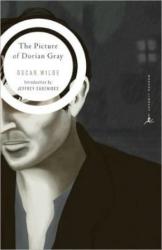
At first, I only picked this book as a classic for school, but I quickly learned it's a classic for a reason. I'd known of the general plot of the novel where a portrait reveals the ugliness of the inside of a man while he remains young, but the way it's written and described makes the full story. The story starts with painter Basil basically putting so much work and devotion into a portrait of Dorian Gray, the painting comes to life. Dorian wishes to stay forever young, and the painting reflects his evilness (vanity, etc.). I enjoyed the sense of mysticism and how everything connects to the theme of appearances are not what they seem. Dorian looks beautiful, but his actions (the thing that makes a person) are grotesque and horrid. The gothic fiction genre is reflected by the dark evilness of Dorian's actions and the magic of the portrait. This book is my favorite class I read this year and the plot surprised me with the characters always returning and a sense of incompletedness when characters leave. If you're looking for a medium-read classic with thought-provoking ideas, then this is for you!
Reviewer Grade 12
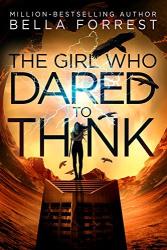
The first book in this dystopian series, The Girl Who Dared To Think takes readers on an adventure to a post apocalyptic world where one girl struggles to fit in. Liana Castell has never fit in with her parents or instructors expectations. Living in the Tower, a large glass home for all those left, requires citizens to wear a band displaying a ranking. The most loyal to the tower receive number close to a 10, while those at 3 or lower receive treatment and many disappear. When Liana meets a man who has a ranking of a ten, though obviously is not deserving of it, she fights to find him and uncover the deep secrets of the Tower.
The book will keep you guessing the whole way through and leave you wanting to read the next.

Critically acclaimed author Madline Miller takes on Greek mythology in a way never done before. In her novel Circe, a lonely child, born from the sun god Helios and a nymph mother, tries to find her way within a world where she does not quite fit. Her father is too powerful to relate to, and her mother wishes Circe had not been born. Not to mention, Circe’s siblings dislike her greatly, and make her life insufferable. It is only when her father, Helios, sends her away to a secluded island where she cannot leave, that she finds the missing piece she has been looking for all her life. Filled with secret romances, magic, sea monsters, mysterious sailors, and man-pigs, Circe is a novel that will wreck your heart and leave you angry for justice. Her isolation is familiar to us all, and reminds us of the importance of loving ourselves. This is a must read!
Reviewer - Grade 12

Cathedral Of The Sea closely follows true events in Catalonia during the 1300s under King Pedro’s reign. It is about the cruelty of the Holi persons and the king of that time. As the men of God, they take best food and live luxurious life. On the other side, people are dying from hunger, different kind of diseases and they have nothing to feed their children especially the Jews. Jews are killed by Christians just because of their religion even they think Jews do not have the right to live. In this novel, religion is broadly used to terrify the people and to maintain rule over them. Sometimes, these kind of holy persons get their soul poisoned because of their greedy nature. Everyone should have the right to follow his/ her religion freely.

The novel “Candide” is a satire on the philosophy of optimism given by German philosopher Wilhelm Leibniz. The concept of Optimism suggests that everything is going to end well in this best world. It was written by Voltaire, one of the most famous and well-read novelists in the world. The word "Candide" means an innocent, simple, and kind-hearted person. The protagonist of the novel traverses across the world and comes across many disasters and faces many hurdles. Pangloss defends optimism by saying that everything happens in this best world for a reason, and it doesn't matter whether it is good or deplorable.
The story opens with Candide, who lives in a noble castle. In the beginning, he is a strong believer of his master's optimism. But as the story proceeds on, Candide gradually begins to doubt in optimism when he is expelled from his castle for loving the daughter of the Baron. After that, another incident happens as the Bulgarians attack the castle of Baron and burn it to the ground, and they massacre all the ladies and children without mercy. After having seen all this, Candide is forced to say that if this world is the best, then why are all these disasters happening to those who don't deserve to be punished? Optimism is useful, and he calls it
"The mania of maintaining that everything is well when we are wretched."
After being expelled from his hometown, he enters the country of Eldorado and receives a very warm welcome from the people of this country. Here, the people nature lover, and their behaviour towards guests is very good and polite. This place is full of beautiful, prodigious mountains, green fields, people love each other, and Candide falls in love with this place. They are with four soups and two roasted monkeys for dinner without taking money. Candide thinks Pangloss was right: all is for the best. The dilemma of Candide about optimism goes on throughout the novel.
Candide offers us some significant themes. Let’s discuss those one by one. On many occasions, the cruelty of people can also be clearly seen in this book. For instance, on his way to Suriname, he sees a physically impaired negro. Candide asks him who did to you?, and the negro replies that we are given only a pair of cotton drawers as clothing twice an year. We work in sugar mills, and when we are tired of working and try to run away or refuse to work, they (white men) cut our legs and hands. We pay this price for the sugar you eat in Europe. His sorrows wrench us when he says animals are also less miserable than we are and he questions we too are human beings and the children of Adam, then why are we treated so horribly?
The tale of an old woman is also very painful. She is the daughter of Pop Urban X and the princess of Palestrina. She is a beautiful lass of honour with blue eyes and curly hair. While she is travelling with her mother to another place named Gaeta, they are attacked and captured by a Salle pirate. It is not easy for a princess to be taken with her mother as a slave to Morocco. She is still a virgin, but doesn't remain long. The flower that was reserved for the Prince of Massa Carrara is now perished by a negro who thinks he is doing her a great honour. Her mother and other women are raped and torn into pieces by these scoundrels.
Candide is a kind of character that shows we should not lose hope or impulse to reach our destination. For instance, Candide is kicked out of his castle because of his love for Cunegonde, whom he adores so much. then it is also reported that Cunegonde is dead, but he doesn't believe it, and after struggling for a long time, he finds her again and loses her again, but at last he marries his buff because he was determined to find her and never gave up.
The same whimsy is highlighted by Mian Muhammad Bakhsh in his tale “ Saif ul Malook”. The prince falls in love with a fairy named “Badi u Jamal”and sees her in his dreams. He sets out on a journey to find her, even though he doesn't know where she lives. His determination leads him to his fairy.
Giving power to someone over others makes people evil. The person to whom you give power will begin using it against others. As Shakespeare says:
"Power corrupts, and absolute power corrupts absolutely."
With great power there also comes great responsibility. According to the testimony of philosophers, exalted rank is very dangerous. For example, Eglon, the king of Moabites, was murdered by Ehud, and kings like Zedekiah and Jeconiah were made slaves. They all were perished because they had used their power for dark purposes. At the end of the day,
"We have to cultivate our garden.” (Voltaire)
Men are never contented with what they have, and their greed is unlimited. I think Tolstoy was right.
"Men are greedy by their nature."
After becoming the Prince of Persia, Candide rewards significant scientists and literary but they are still not satisfied and happy. Candide is quite with human nature and knows that men will never be satisfied with whatever they get because of their greedy nature, which cannot be changed easily.
In short, Candide is a master piece of Voltaire, and effects its readers deeply. Before reading it, I was desperate to know Voltaire's view on optimism. I enjoyed it a lot and might read it again because of its readable and diverse meaning under the layers.
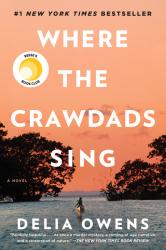
Please believe me when I say, this book deserves the hype. It is genuinely one of the best books I have ever read. The storyline was unique, the pacing was perfect, and the characters were so interesting. Kya is a girl living in the marshlands of South Carolina who is abandoned by her family at a very young age. The book follows her journey to survive, using nature's resources and a few memorable lessons from her mother to become a strong and capable woman. Despite this accomplishment, Kya is labeled as an outsider and is linked to a cruel murder, whose ruling will determine if she will ever grow beyond the constraints of others' opinions. Kya is a character with much perseverance, and her gratitude for the simplest of things is a lesson to take to heart. The friends she meets along the way are also patient and caring. The jump between timelines kept things interesting, and the two dates finally colliding into one made it impossible to put the book down. It is worth reading this book for the themes of child psychology, social rejection, appreciation for nature, and much more.
Grade 12
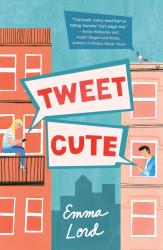
Finally! Two main characters with different, yet well-developed, personalities! I really loved Pepper and Jack, both of whom struggle with the pressures of running the social media side of their family businesses. The two are considered enemies, but fall in love on an anonymous texting app. Their busy lives with balancing swim team and good grades made each chapter entertaining. Their banter throughout the book was great, sarcastic and witty without being mean. I was kind of put off at the beginning because Jack and Pepper realized they were both fighting on Twitter very quickly, so I wondered what the rest of the book would be if the main plot was already spoiled. However, they had been clueless on more platforms than one! If contemporary enemies-to-lovers books intrigue you, this one will not disappoint.
Grade 12
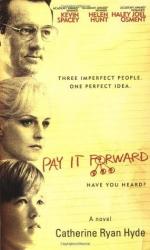
A twelve-year-old boy in a small California town named Trevor McKinney accepts his teacher's challenge to earn extra credit by coming up with and creating a plan to improve the world in the lovely and inspiring book Pay It Forward. When others hear about Trevor's idea, they immediately dismiss it because it is so simple and naive. Even Trevor starts to have second thoughts when his "pay it forward" scheme seems to fail due to a mix of bad luck and the worst aspects of human nature. This book is incredibly realistic, enjoyable, and motivating. The main characters all have distinct personalities that set them apart from one another. As you read on, you can clearly visualize the characters in your head. It's difficult to keep reading this book without taking a break. There is plenty of drama, action, and romance in the book. I adore that this book has a deep significance behind its title, Pay it Forward. This was chosen by the American Library Association for its list of the Best Books for Young Adults, and it has been distributed in more than 30 countries by being translated into more than two dozen different languages. This is a very powerful, moving story. At first, I found the style a bit difficult to read as it kept jumping around to different viewpoints. This was a different read for me at first. It had characters that were coming into the story, and didn't know how they fit in. Later it made sense Once I figured the actors read smoother.
Reviewer’s Grade 8th

Alice Oseman's Heartstopper series blew me away, so I was excited to see her take on a contemporary novel. It was... pretty good. The main character Georgia has a very relatable personality as she experiences her freshman year of college, as she tends to overthink interactions and struggles with finding her identity. The close relationship she has with friends was a really beautiful story to read about, so that part was amazing. Pip was a really funny character, and I liked how she also had depth as a side character and didn't need to be with Georgia at all times. However, the plot revolves mostly around Georgia discovering her sexuality, and that felt very repetitive. It was really cool to have asexual aromantic representation, and finding peace in that identity with the loving LGBTQ+ community. I do just think that Georgia kept having the same discussion with herself and dragging friends into experiments with her sexuality for no reason. For example, I found it weird that her roommate, Rooney, was obsessed with getting Georgia a romantic partner. Georgia mentioned being single once, and now Rooney just won't let it go? The book would have been much better if Georgia had just consulted her friends instead of dragging them into this great mission of finding a partner (but it would be a short book if everyone communicated too well!). Overall, I would really recommend this book to anyone who is struggling with their sexuality or just a new experience like going away for college. It is a great coming-of-age piece.
Grade 12
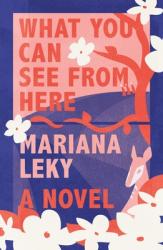
What You Can See from Here follows a small cast of characters in their small town as the world changes around them. There's Selma, the old woman who sees an okapi whenever someone is about to die. There's the optician, who is desperately in love with Selma and doesn't know how to tell her. There's Selma's granddaughter Luise, our confused and content protagonist. There's Japanese monks, ten-year-old strongmen, experts on light, and one truly unpleasant neighbor. Together, this community will learn to process love, loss, and the ties that bind us together.
This book is something strange and special. It took me a very long time to read, and yet is completely entrancing. There's a scattershot plot, yet I could follow every theme perfectly. It was translated from German, but you can hardly tell with the expert job the translator did at keeping the prose spellbinding and heartbreakingly beautiful. Honestly, the fact that the prosaic writing was still the strongest part of this book despite it being from a foreign language is a testament to the expertise of both writers. Besides the stellar writing, the characters in this book have so much life to them. Losing any of them is a genuine blow to the reader despite the large amounts of foreshadowing, since over the course of the novel we grow to know them as well as the real people in our lives. They're also funny and fascinating, making it so fun just to watch them interact and learn and grow from each other.
There are issues with this book, mainly the pacing. There are a lot of slow parts of the novel that make it difficult to stay focused. But I hesitate to condemn the book for this, since even the slower pacing feels intentional. This is a book all about the slow parts of life, about the gaps in between. A major theme is how taking the time for something or someone is very often worth it, and that's what I think about the book itself. I also appreciated that the book was willing to spend so much time on character and backstories, since it really gave me the feeling that I was living in this small town right alongside Luise. The ending of the book was also wholly satisfying. It was cyclical without being repetitive, and I find myself thinking about it and what it means from time to time.
All in all, this book was mystical and grounded and heartbreaking and hilarious. I would recommend it for anyone looking to learn a bit more about what life and love means, and how our community traps and shapes and grows us all the same.
Reviewer Grade: 12
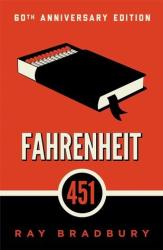
451͒ Fahrenheit is the temperature when paper starts burning. Guy Monteg knows it for sure. He’s a fireman. However, his job is not to put out the fire, but to make it and burn the books. He likes his job, but there is something that he hides from everyone, including his wife.
From every fire, Guy saves a book. In his society, books are forbidden, as they are considered to make people unhappy, evolving complicated emotions and making the readers think. No books means no worries, but a careless life, full of joy and simple entertainment.
One day, Guy Monteg decides that he does not want to live like he used to anymore. He finds a former English professor and asks to teach him to understand what he reads about. Together, they make a plan to save more books in the hope that war will destroy the existing system that they have to live in.
But any secret becomes clear, and the next night Guy gets an order to burn his own house. He destroys it with a flamethrower, as well as his captain, co-workers and the Mechanical Hound.
Monteg escapes. He does not know though, that after all the dangers on his way, he will finally find his destination and meet those whom he will belong to.
It may be hard to feel, but the book is sharp and straightforward. Through the adventure in a fictional universe, Ray Bradbury shows us what might happen, if humanity keeps moving in a direction that will only satisfy basic needs and bring momentary pleasures. I’m sure, some of us can already recognize ourselves with shame in Beatty or Mildred. We’ve already made that first step on the path to the world, where people burn books. This dystopia teaches us that we can always make a difference in the world and change our lives the way that we believe is right. There will be those who will try to destroy you, but there will also be those, whom you will be able to rely on.
The novel creates a tense engaging atmosphere, where you can smell threat in the air and hear the chase behind your back. It does not let the reader go till the very end and stays in mind days after.
Reviewer Grade: 11
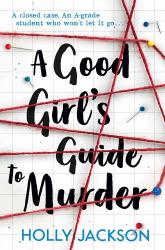
A Good Girl's Guide to Murder is a surprisingly dark and complex book. The main character, Pip, decides to investigate a "solved" murder in her town from five years ago, one that she is very close to. She teams up with the alleged murderer's brother and slowly unravels a well-hidden mystery. The book's organization made an otherwise-complicated crime easier to understand. You would read a chapter, then Pip would summarize the findings in her capstone project diary entry. This information was backed up with occasional maps and diagrams as well. Although I did get lost at some parts with there being so many names, I appreciated there being enough suspects that it was impossible to figure out the mystery until the characters did. Pip was clever and eloquent, so her handling of this personal investigation didn't take away from the story. Not to mention her friends along the way, who were pretty well-developed side characters. If you think the pacing is slow for the first part of the book, keep going!
Grade: 12
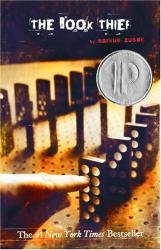
The Book Thief starts in January 1939, in Nazi Germany. The main character, Liesel, was traveling on a train with her mother and brother when her brother suddenly dies. Liesel was only nine at the time, and the wound that was inflicted then, she would bear forever. At her brother's burial site, she stole a book for the first time, earning her the name "The Book Thief". Her story is told from the perspective of Death, who is depicted as an immortal being with feelings and a heart.
Liesel then traveled to Himmel Street, where she lived with her foster parents for the remainder of the book. Liesel made new friends, finds a family, and overcomes the grief caused by her brother's passing there. But most importantly, she discovered the power and impact of words there. The power of words is the central theme or message of The Book Thief.
Throughout the book, Liesel steals more books and becomes braver and more mature. Initially, she was a child who didn't know about all the beauty and ugliness in the world. But as the plot developed, she experienced more of the brutality of WW2 and found her role in her community. After she learned to read, she started to spread the love that was caused by words to her neighbors, by reading out loud during air raids. She also learned to love and understand people better.
The author, Markus Zusak, used the symbolism of colors to illustrate a picture of the world that Liesel lived in. For example, when Death described a scene, the sky was always a different color or texture. When describing a bloody battlefield, the sky was described as plasticky, to show the stillness and emptiness that was caused by the death of soldiers.
I highly recommend this book to readers looking for a thought-provoking and intense book. Liesel's and the other characters' lives were presented in a very relatable way, which will make readers question their own attitudes on life and the world.
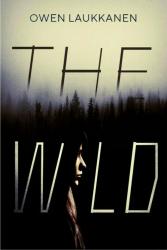
This is the kind of book with so many cliffhangers, you can't find a stopping point. This is a book you'll want to read in one sitting but remember you have homework and have to reluctantly put it down. This is a book that makes your hands sweat and your heart beat faster. The vivid imagery and dynamic characters will make you feel as if you're there yourself. This is a book for adventurers. This is a book for the fearless. This is Underlined Paperbacks and this is The Wild.
When Dawn is sent to a wilderness boot camp for one to many bad decisions, she ends up in a situation her parents nor her ever expected. The people she meets there have bad decisions they are also living with and as the woods get darker, their pasts are revealed. Will they make it out of the camp alive? Is everyone there for the reason they claim they are?
Reviewer Grade: 11
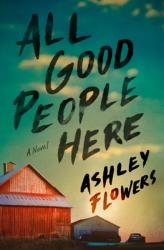
I am a big fan of Ashley Flowers from her career with audiochuck podcasts, so reading her first novel was a no-brainer. The story is about a journalist named Margot who returns to the small town in which she grew up to care for her uncle struggling with memory loss. However, the disappearance of a young girl at the same time causes Margot to reflect on the unsolved murder from her childhood, decades back. Like a true investigator, she sets out to solve both cases once and for all. Previous reviews had hinted at constant plot twists, and I definitely experienced that the whole way through. The case wasn't truly solved until literally the last page. Overall, Flowers' writing style is just as eloquent as her podcasts, with unique characters and eerie suspense. Although a few side characters, like the police officer Margot befriends, are pretty bland, more time spent on the Jacobs family character development seemed like the intention all along. And as soon as one plot twist had been announced, it was written off to make way for the next one quite suddenly. It felt as though some character explanations were still unfinished. Finally, though I hate to say it, such an abrupt ending was kind of unsatisfying. It was almost a five star book through-and-through, and just one more chapter could have done it. Nonetheless, I will recommend this book any day!
Grade 12
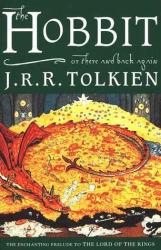
If you are looking forward to diving into the fascinating world of dwarves, wizards and elves and feel ready to fight evil wolves, man-eating trolls and a fire-breathing dragon Smaug, then The Hobbit by J. R. R. Tolkien is definitely for you. A warm children’s fantasy novel, which, however, will captivate the hearts of many adults, takes you to the atmosphere of fairy tales that you were listening to by the fireplace as a kid.
The main character, hobbit Bilbo, at first reminds us of ourselves. He, as all the hobbits are supposed to do, loves eating good food, spending time at home and making their houses cute and cozy. However, his routine crashed as a dropped pot, when a wizard Gendalf knocked at his door. Welcoming him inside, Bilbo could not even imagine that soon he would go on a true adventure all the way to the Lonely Mountain and save an ancient treasure from the claws of a furious dragon. On his way he will meet many different creatures, make friends and enemies, defeat mountain trolls, get captured by giant spiders, get into another captivity right after that, outplay Gollum in the caves and get the magical ring. But what is more important, Bilbo will turn into a brave warrior (what a shame for the entire generations of hobbits!) and a loyal companion.
The author's writing style and original universe makes it impossible to stay indifferent to the story. Kind and soft narration wraps you as an old blanket and keeps you cozy even in the coldest evenings. Younger readers, as well as their parents, will find many life lessons on the pages of The Hobbit, such as why it is important to make smart choices, appreciate your friendships and be ready to help those who are in trouble. The book is an awesome pick for both family time and independent reading.
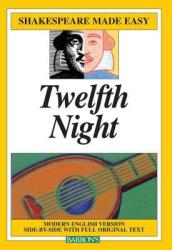
Great book! It's actually so hilarious because of the love triangle. Highly recommended!!
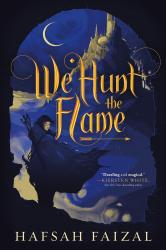
We Hunt the Flame is about a girl named Zafira who is forced to take on the role of breadwinner after her father died. She is a strong-willed, independent character who gets dragged into a quest to find a rare item with incomparable power. While she has noble intentions, the prince, Nasir, takes on a role of assassin as he fights to find the artifact before she does. I really liked the slow-burn romance throughout the book, and how Zafira's personality doesn't change as she falls in love. Nasir's character arc is a really important lesson too, as he struggles with a need for approval from his father, and the cost of that approval. The other characters were really interesting as well. The author did a wonderful job of describing each personality, so even though there were a lot of characters, I never got confused between them. Near the end, a lot of the action did muddle what I thought would be an epic conclusion to the book, and the plot twists at the end were interesting but not necessary. It was obvious that the author wanted to set up a plot for the second book, but it felt forced. However, the characters were likeable, not predictable, so you might catch me reading the sequel!
Grade 12
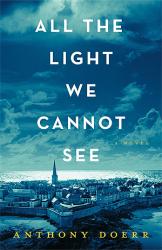
All the Light We Cannot See by Anthony Doerr is a historical fiction novel that is set in World War II. This book focuses on two characters Marie-Laure Leblanc and Werner Pfennig. Marie-Laure is a blind girl in France that relies on her father to help her live her life. Werner is a genius German who gets drafted by the Nazi’s to build and find the enemy with radios. These two conflicting worlds will soon crash into each other in the most heart wrenching way possible. I recommend this book to anyone who enjoys history or suspense.
Jaala 12
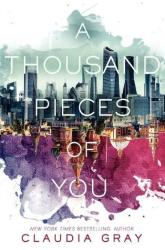
A Thousand Pieces of You by Claudia Gray is a science fiction and adventure novel that anybody would love. This easy read quickly starts off with our main character, Marguerite, jumping into an alternate reality chasing her friend who killed her father. She catches him, but before he slips out of her grasp, she is conflicted with the question if he really did it or not. This book mixes physics for any math lovers, adventure for any aspiring traveler, and just a little bit of romance that makes it difficult to grasp onto what is real or fake. I would recommend this book to anybody who is in a reading slump and needs a good pick me up.
Jaala 12
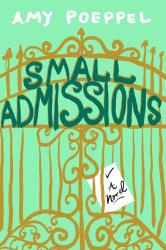
Small Admissions follows Kate Pearson, right after getting brutally dumped at an airport by her handsome, French, almost-fiancé. After the prodding of friends and family, Kate takes up a job with private school admissions, and is quickly thrown in to a mess of angry parents, bratty kids, scholarship grants, and interview skills. Throughout her journey, Kate and her friends will need to learn to let go, keep going, and grow up.
I love Amy Poeppel's books because each of her characters is so wonderfully flawed that it's a love letter to changing even as an adult. Every character in this book has a lot of issues, ranging between codependency, independency, over-confidence, under-confidence, and all possible maladies in between. This was very annoying in the beginning, but it lended to the catharsis of character development at the end. I never knew I could get so invested in a middle-aged woman making one good decision, but 300 pages of horrible decisions will do that for you! The characters themselves are amazingly vibrant and likable despite their horrible choices. There were a lot of names to remember at first, but each soon became memorable in their own way. They also interacted wonderfully throughout the book. Even though some characters got more time to shine than others, watching them bounce off each other was so fun. In particular, the female relationships in this novel get a lot of time and development, which I appreciate. The writing itself was great, not a ton of prose but very smooth and concise. The themes were phenomenal, and carried through the entire piece. There's a throughline of learning to let go of things you thought you'd always have, and while this at first seems obviously related to Kate's break-up, it applies to practically every character in the novel. People have to let go of jobs, schools, belief, and people, and it really is a love letter to letting yourself change for the better.
All in all, despite some issues with the large number of initially annoying characters, this book is phenomenal! I'd recommend this book to anyone who wants great character growth, a solid story, and a lesson on letting go!
Reviewer Grade: 12
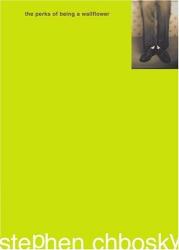
I chose this book because I had watched the movie and was curious as to how the book was in comparison. I found that both were great overall and I don't dislike one more than the other, but the book felt more mature than the movie. Overall I really did enjoy this book, the detail in the book was a great touch, as well as was relatable. Personally, I felt a connection to some of the characters having to leave for college and trying to get the best possible score on the SAT. There is only one thing I did not enjoy about this book though, which is that there is a lot of smoking. The smoking feels a bit excessive, especially when the book follows a freshman in high school, so the amount of smoking I feel like does not portray a true aspect of what that would look like in real life. I would recommend this book to an upper teenage audience since there are mature topics such as brief sexual scenes and smoking. I gave this book 4 stars since I felt like it was very well written and an enjoyable book to read; the deduction of one star was due to the portrayal of smoking. This is honestly a great read that I personally love, I would definitely recommend it!

The strength of Andy Weir's hard sci-fi storytelling was evident in The Martian . He sets up a problem, shows us a solution, then does everything in his author-ly power to prevent the main character from achieving that solution. His scientific explanations might get a little dry, but they are necessary to understand the situation without diving too deep into details. While his sophomore effort with Artemis showed me he struggles with writing women, he came back to his roots and knocked it out of the park with Project Hail Mary.
There are many similarities between The Martian and Project Hail Mary, which is probably why I like both books equally. Sure, the stakes are higher in Project Hail Mary—with the survival of humanity on the line instead of just one astronaut—but the explanation of the science follows the same format he used in The Martian. Specifically, a problem derails all the progress made so far, and it requires more science (often jury-rigged) to fix. The twist that gives this book a slight edge over The Martian is how science is a universal concept.
I came into this book blind, which helped me fully appreciate the "buddy" dynamic between the two main characters. The flashbacks felt a little like an exposition cop-out due to Ryland Grace's amnesia, but they were necessary to ground the motivation of his character. Without Ryland's "friend" that he found on the journey, it's difficult to know if the result of the last-ditch effort to save Earth would have had the same outcome. There are strong comparisons to Ted Chiang's short story, Story of Your Life (and its film adaptation of Arrival (2016)) here, which just shows how well-thought-out this book was.
Another perfect hard sci-fi adventure by Andy Weir, I give Project Hail Mary 5.0 stars out of 5.
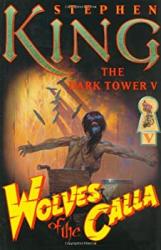
There comes a point when you've consumed enough stories that you notice similarities. Sure, there are common tropes applied to plots that make them seem similar, but what I'm talking about is when you're reading a book and immediately, you're like, "This is exactly like [FILL IN THE BLANK]." For me, the fifth book in the Dark Tower series, Wolves of the Calla, laid out its premise, and I instantly thought, "This is exactly like Seven Samurai (1954)." Fortunately, there was more to this book than this classic tale of villagers defending themselves with the help of skilled warriors.
I will give credit to Stephen King for taking a well-known plot and adding enough sub-plots to distract from the fact that this book is the Dark Tower equivalent of The Magnificent Seven (1960). This is probably because these sub-plots are the driving force behind the main story arc of the series. As such, the Father Callahan/Black Thirteen thread was a welcome distraction from the training sequences that plague stories that follow the A Bug's Life (1998) formula. It was this sub-plot that makes me excited to read the rest of this series.
All jokes aside, Stephen King's use of the "hired warriors" trope was well written in Wolves of the Calla. It used the already-established western tropes present in the Dark Tower series to present a familiar conflict. It felt fresh and unique despite having seen many iterations over the years. I especially liked the "skilled plate throwers" as it helped enforce the ease at which Gunslingers can adapt to different styles of projectiles with deadly accuracy. It's rare to see a book this late in the series have such a solid plot, but I suspect it is due to this tried-and-true plot.
The Seven Samurai of the Dark Tower series, I give Wolves of the Calla 4.0 stars out of 5.
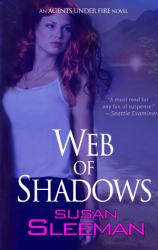
Two years ago FBI agent Nina Brandt sent a hacker with a paranoid disorder to prison, and he has spent these past two years to make a detailed plan of how to get is revenge. At the same time, her ex-fiancee's brother hacks into the TSA's No Fly List. When Quinn Stone, her ex-fiancee, realises his brothers only hope to stay out of jail is to ask her for her help. What Nina and Quinn don't see coming is that their past is going to come back to haunt them. Nina is pulled far deeper into the investigation that she ever thought she would be. Although crime isn't the only thing on Nina's mind. She realises quickly that she is falling for Quinn again. Everything depends on if Agent Brandt can manage to solve the crime and prevent terrorists from receiving the No Fly List information and also keeping herself from being killed by Wiley, the felon out to get her.
Web of Shadows is the second instalment of the Agents Under Fire Series.My reason for reading this book is that I have read other books of Sleeman's and this one sounded interesting. From its many intriguing plot twists to Nina's romantic indecision, I enjoyed almost everything about this books. The only thing I don't like, is at the beginning most of the point of view is from the felon. I think the type of people who would enjoy this book the most are teens and adults, and it is a fiction mystery.
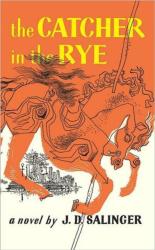
I don't understand why this is a classic. I only vagally understand the book. the main character, Holden Caufield, doesn't learn anything. I can't see any reason to read.